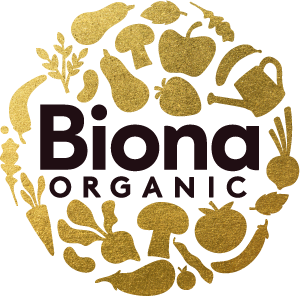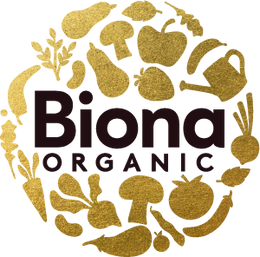BEYOND PLASTIC FREE JULY: HOW TO REDUCE YOUR SINGLE-USE PLASTIC THROUGHOUT THE YEAR
Plastic Free July may have finished for this year, but that needn’t mean we lose energy for reducing plastic pollution. For those that missed the challenge or want to adopt some more lasting planet-friendly habits, this one’s for you!
What is Plastic Free July and the Plastic Free Movement?
Since mass-production of the material took off in the early 20th century, Earth has had a big plastic problem. The Plastic Free movement grew from the desire to do something about it, starting with Plastic Free July – begun in Australia in 2011. Shocked by the volume of plastic at a local recycling plant, Rebecca Prince-Ruiz pledged to avoid single-use plastics for a month. Inspired, colleagues joined her, friends and families picked it up and before long, the internet turned her personal challenge into a global one.
Now, the Plastic Free Foundation invites everyone to join in every July. The idea is to swap one single-use plastic for a more sustainable alternative for the month. An incredible 326 million people took part last year2.
Why Plastic Free?
As a versatile, useful and relatively cheap material, plastic has found its way into nearly everything. The issue?
Petrochemical plastics (common synthetic plastics made from fossil fuels) never fully degrade.
Around half1 of all plastic items produced are for single use. This means a very fast-growing build-up of it in the environment.
The Most Common Single-Use Plastics and How to Give Them Up
By making some simple swaps and encouraging your loved ones to do the same, you can drastically cut down your family’s plastic waste.
Why not start with these? Four of the most common single-use plastic items amongst marine waste3 and how to switch them out for a more sustainable alternative.
1. Cutlery, plates, stirrers and straws
Plastic flexible straws are a lifeline for people with some disabilities and illnesses; everyone else can forgo them altogether! If you love drinking through a straw, there are paper versions. Even better is the stainless steel alternative, which you can carry around in your bag, wash and reuse indefinitely.
For other utensils - reusable is always preferable. You can get lightweight, sturdy bamboo options for carrying around. Otherwise, try compostable cutlery, remembering to pop them in your food waste bin to ensure they have the right conditions to biodegrade.
2. ‘Disposable’ coffee cups
There are thousands of reusable plastic free hot beverage containers available now and some coffee shops even offer reward schemes for making use of them. Make grabbing yours on the way out a habit (just remember to wash it up each day!).
3. Plastic bottles
Like coffee cups, there are plenty of sustainable bottles for you to choose from. Carrying your own water with you encourages you to keep your hydration up and saves you money. What’s not to love?
4. Food containers
You can reduce the quantity of plastic that comes with your food by aiming for a sustainable food shop: choosing loose items and products packaged in glass, paper, card and tins wherever possible. Did you know Biona has a vast range of glass and paper-packaged products? Plus, 93% of our packaging is fully recyclable, and we’re always innovating to ensure our products are more sustainable for example:
- Our rice and spelt pasta ranges, plus many of our grains and legumes, are now packed in paper bags.
- Biona 4-packs always come in cardboard sleeves rather than vacuum-wrapped plastic.
- Biona cans are all now Bisphenol-A (BPA) free. BPA is an industrial plastics compound, commonly used to line food cans to prevent rust. As well as migrating into the food we eat, BPA has toxic effects in the environment.
Top Tips for Going Plastic Free in July and Beyond
Now you know some alternatives for the ‘worst offenders’, you’re ready to start taking some small steps towards a more sustainable lifestyle:
- Print this action picker for more ideas and a visualisation of your impact!
- Start small! Try making simple changes to begin with – keeping it achievable keeps you motivated. Once the habit is entrenched, add another…then another…
- Take the Pesky Plastic Quiz to give you an idea of how you’re doing (you’ll also be contributing to important research!)
- Choose wisely. You can vote for the change you want to see in the world by choosing brands that care as much as you do – they’ll be the ones that make your plastic free quest easier by providing other packaging options!
- Be kind to yourself. It takes time to form new habits, and sometimes the options just won’t be there for you. You don’t need to go zero-waste instantaneously to make a difference.
Biona’s Plastic Pledge
At Biona, we're on a mission to find the best way to get our products to you. Whether it’s BPA free cans (such as our well-loved classic Organic Chopped Tomatoes), our huge range of glass-jarred products (like protein-packed Organic Tempeh) or our commitment to switching plastic to paper wherever we can (check out our paper rice and grain packs), you can rest assured we’ll always strive to minimise our use of plastic – to make it easier for you to do the same.
Did you participate this year? What small, sustainable steps could you try to make a habit of? We’ll be doing the same here at Biona, continuing to find ways to minimise plastic use and introduce more sustainable options wherever possible.
Sources
1 https://plasticoceans.org/the-facts/
2 https://www.plasticfreejuly.org/
3 https://ec.europa.eu/environment/topics/plastics/single-use-plastics_nl









